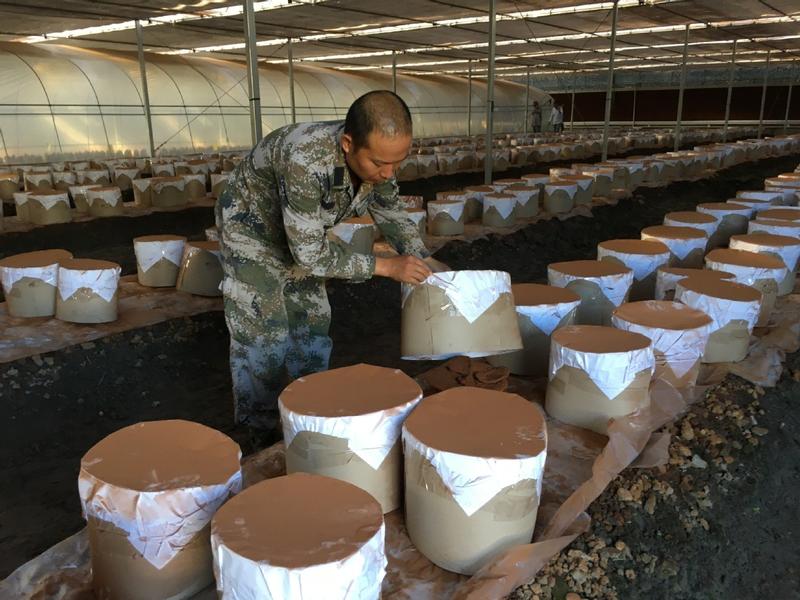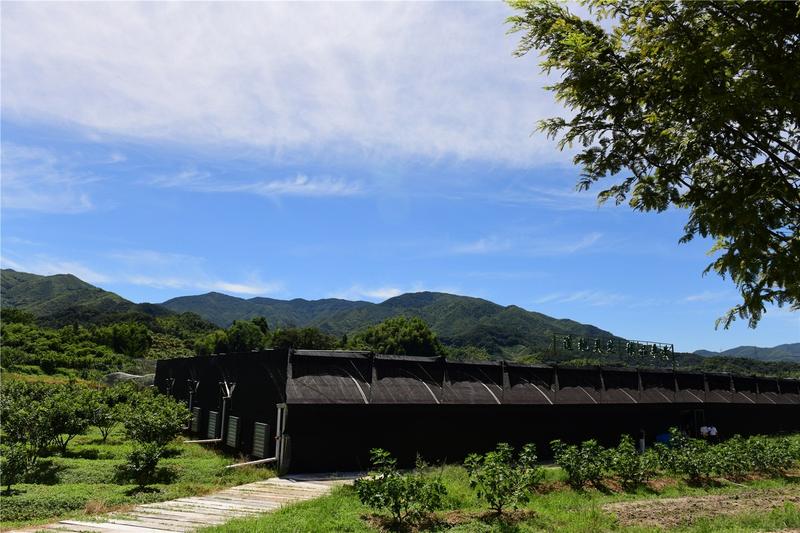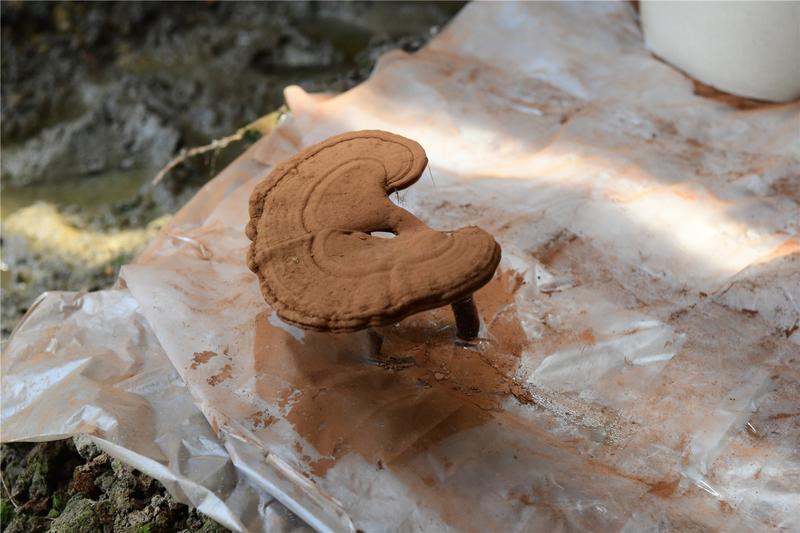August is the beginning of harvest season for Sun Guoquan, a farmer in Lianglong township, Yuyao county, Zhejiang province.
 Sun works in his Dongli Farm greenhouse. (PHOTO PROVIDED TO CHINA DAILY)
Sun works in his Dongli Farm greenhouse. (PHOTO PROVIDED TO CHINA DAILY)
On Tuesday, he started to collect the spore powder of lingzhi mushrooms that were planted in his Dongli Farm greenhouse in April. Sun estimates that his 0.27 hectare of mushrooms will produce 150 to 200 kilograms of spore powder annually and return 6,000 yuan (US$870) per kg.
The red, kidney-shaped mushroom is highly prized for its health benefits.
I hope to apply for more land to build facilities, such as an exhibition hall to present the lingzhi and sanghuang I planted
Sun Guoquan, farmer in Lianglong township, Yuyao county in Zhejiang province
Sun hopes all the lingzhi spore powder will be collected before October, which he then intends to sell on WeChat. "Nowadays, people are more aware of their health and fitness. They don't only take health products when they are sick. Given the growing market and the fact that no other farmer has planted lingzhi before, I wanted to try," he said.
READ MORE: Farming reforms bearing fruit
Local farmers such as Sun have benefited from land reclamation projects in recent years that have turned the once largely barren land in the hilly county into a productive agricultural area.
Fan Sensheng, an official with the Yuyao natural resources bureau, said the county government is encouraging farmers to grow products with a higher yield and value.
ALSO READ: Land reforms upgrade industrial structure, boost farmers' incomes
 The greenhouse at the Dongli Farm is surrounded by fruit trees. (PHOTO PROVIDED TO CHINA DAILY)
The greenhouse at the Dongli Farm is surrounded by fruit trees. (PHOTO PROVIDED TO CHINA DAILY)
Zhu Zhongjiu, head of the township, said the township has given 20 hectares of farmland to farmers and developed 733 hectares of well-equipped and planned farmland.
In the past 10 years, a handful of farms growing seasonal fruit were developed while 10 new varieties including quinoa, lingzhi and oryza, or Japanese rice, were introduced.
The county has also established 40 fruit-picking bases covering 233 hectares. In peak season, the bases attract 3,000 visitors on average each day.
Last year, 500,000 tourists paid to go fruit picking in the county, which helped increase residents' annual income by 10,000 yuan on average to 35,028 yuan, according to the local government.
Sun is betting on his high-end products bringing him greater returns. He also planted sanghuang, a hoof-shaped mushroom that grows in the wild on mulberry trees, in the greenhouse. It has higher nutritional value than lingzhi and can help strengthen the immune system.
 A lingzhi mushroom growing in Sun Guoquan's greenhouse. (PHOTO PROVIDED TO CHINA DAILY)
A lingzhi mushroom growing in Sun Guoquan's greenhouse. (PHOTO PROVIDED TO CHINA DAILY)
Sun believes most of his mushroom spore buyers will be wealthy businesspeople from Zhejiang with an interest in health products.
He also hopes to draw from his current base of customers who buy produce directly from his farm via a WeChat account.
In 2012, he started to grow fruits such as blueberries, cherries, mulberries and peaches on his 69 hectares of land.
"I used to plant flowers and trees, but seedling cultivation harmed the soil," Sun said, adding that selling the fruits brought in annual profits of 400,000 to 500,000 yuan.
Located in the foothills of Siming Mountain in eastern Zhejiang, Lianglong has lagged behind in industrial development due to its poor transportation infrastructure. In recent years, the local government has also reconsidered land use to include environmental improvements.
Lianglong has more than 60 homestays to cater to the booming tourism industry.
Sun wants to build entertainment facilities around his farm to accommodate families coming to pick fruit and visit his lingzhi greenhouse.
"I hope to apply for more land to build facilities, such as an exhibition hall to present the lingzhi and sanghuang I planted. Visitors may want to buy some after being educated on the benefits of these health products," Sun said.
"I have invested 6 to 7 million yuan in the greenhouse and hired about 10 villagers to take care of it. I see hope in growing the mushrooms," he added, smiling.


